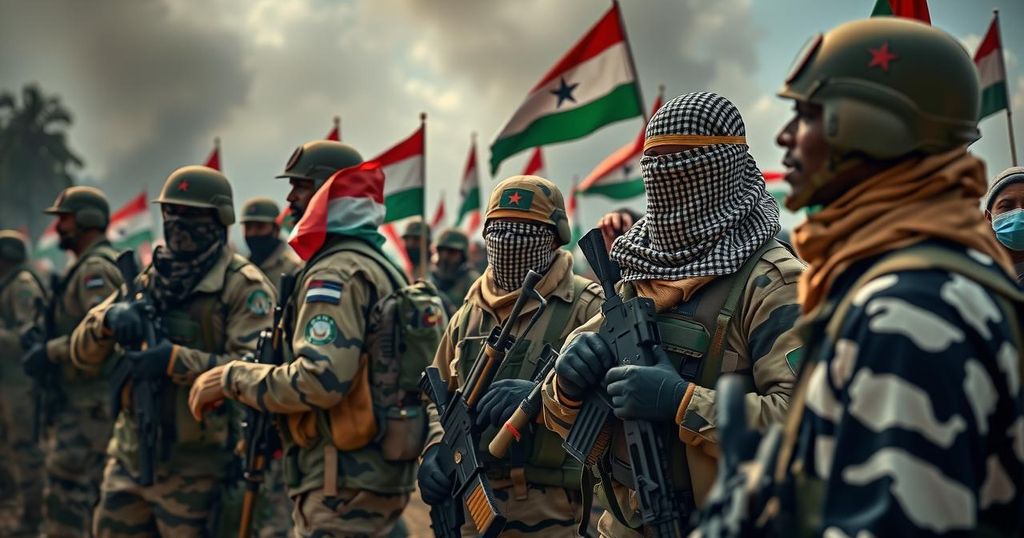Sudan calls for a cessation of mercenaries from Libya, Chad, and Niger amid ongoing conflict and internal displacement. The Rapid Support Forces have been identified as a primary threat, with significant humanitarian implications. The Sudanese army asserts its ability to ensure security without international peacekeeping forces, highlighting the need for international condemnation of the violence perpetuated by the Rapid Support Forces.
In a recent press conference in Tunis, Sudanese Ambassador to Tunisia, Ahmed Abdel Wahid Ahmed, emphasized Sudan’s urgent need to halt the influx of mercenaries from neighboring countries such as Libya, Chad, and Niger rather than seeking military assistance. Amidst ongoing conflict between the Sudanese army and the Rapid Support Forces, he reported ongoing challenges with mercenary groups, stating that eliminating one group only leads to the emergence of another.
The conflict in Sudan has escalated, leading to a humanitarian crisis with millions displaced as a result of hostilities between various factions. The Rapid Support Forces have been implicated in violent actions that have heightened instability within the nation. As Sudan grapples with both internal dissent and external pressures, the role of neighboring countries in this crisis is critical to understand.
The Sudanese government, represented by Ambassador Ahmed Abdel Wahid Ahmed, is advocating for an end to external mercenary involvement while asserting that the Sudanese army is capable of maintaining order without international intervention. The situation remains dire, with millions displaced and ongoing military confrontations, underscoring the need for diplomatic resolutions and cessation of violence for the return of stability.
Original Source: libyaobserver.ly






